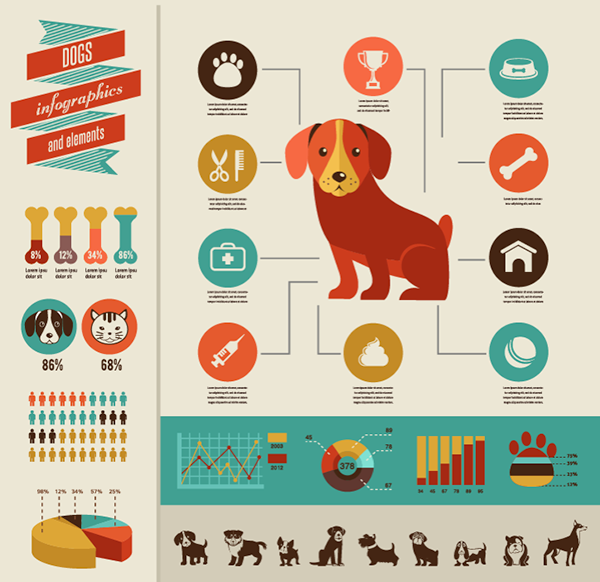How To Know If Dog Likes Daycare
Can Pet Dog Childcare Reason Disease?Pets in day care receive great deals of exercise, socialization with various other pet dogs and distinct experiences. This can be particularly helpful for pups and pet dogs with behavioral issues.
There are numerous lawful considerations you need to consider when beginning a dog day care organization. These include the structure of your company and compliance with government guidelines.
1. Dog Distemper
Canine distemper is spread out with straight contact with the physical liquids and waste of a contaminated pet, yet it can additionally be transmitted through shared water and food bowls or through airborne droplets. This extremely infectious health problem is most hazardous for young puppies, however it can affect canines of any type of age and is deadly for a lot of if left unattended.
First symptoms of canine distemper often mimic a common cold, including dripping eyes and nose with watery or pus-like discharge. As the condition proceeds, a pet will certainly create high temperature, coughing, lowered hunger, throwing up and diarrhea. The virus can also attack the nervous system, causing seizures, shivering and partial or full paralysis.
Trustworthy childcares minimize exposure to infection by needing vaccinations, routine health examinations and adhere to rigorous health procedures. If your puppy seems overly tired or limping, a day off might aid him recoup, however you ought to avoid taking him back to childcare till these signs and symptoms improve.
2. Kennel Cough
Kennel cough, additionally called contagious canine tracheobronchitis or Bordetella, is an extremely contagious viral or microbial illness that impacts the respiratory system. It's generally moved with the exchange of saliva or air droplets that a sick dog breathes out. Social pet dogs are at greater danger for infection due to their frequent communication with one another, such as when they play, share food or water, sniff each other or just meet in a crowded setting like a pet dog park or day care.
The most common signs and symptom of kennel coughing is a persistent and strong coughing that sounds like something embeded the throat or retching. Usually, pet dogs will cough up foamy white phlegm. If left without treatment, dog board training near me a pet dog can develop pneumonia and be at significant threat forever.
A respectable daycare center must have stringent cleaning and hygiene procedures, sterilize all toys, food and water bowls consistently, and be open regarding their vaccination plans. Keeping your dog approximately day on their vaccinations, especially for bordetella and canine influenza, will substantially decrease their chances of getting the health problem.
3. Parvovirus
Canine parvovirus, or parvo, is a highly transmittable viral disease that can be deadly for pups and young adult pets with bad body immune systems. It's most frequently spread by straight contact with polluted dog feces-- which can occur when dogs smell, lick, or taste contaminated feces-- and indirectly from polluted people, things, or atmospheres (like kennels, grooming spaces and lawns). Pups and canines without full vaccination backgrounds are particularly susceptible to parvo.
The infection is incredibly resistant, surviving in the atmosphere for as much as 9 years, and can conveniently be transferred between canines by get in touch with with feces or on footwear, apparel, and bedding contaminated with parvovirus. If not dealt with quickly with IV liquids, electrolyte equilibrium, vomiting control drugs and prescription antibiotics to prevent additional microbial infections, a canine will swiftly dehydrate and create severe looseness of the bowels, which leads to shock and blood poisoning. Parvo is difficult to treat as soon as a canine has actually ended up being ill, yet with suitable vet care, lots of pups do survive this ailment.
4. Canine Flu
Canine influenza infection is extremely transmittable and spreads through direct call, sharing food and water bowls, licking or nuzzling other pet dogs, via airborne droplets, and via contaminated surfaces. Inoculation works in reducing the danger of infection and episodes.
Most impacted pets develop a moderate respiratory system infection with a cough that lasts 1-3 weeks. They might additionally have nasal and ocular discharge, sneezing, and sleepiness. Some of one of the most significant cases lead to pneumonia and a high fever.
If your pet exhibits any of these signs and symptoms, do not bring them back to childcare till they are healthy. If your pet dog is showing signs of severe exhaustion or limping, speak to your veterinarian right away and make certain they get on good health supplements to assist construct their resistance. A veterinarian will examine your dog for symptoms of the flu by taking an example from the nose or throat, and blood examinations can be done to validate.
